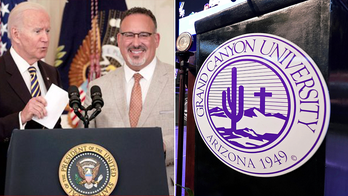The U.S. Supreme Court's recent decision overturns a Ninth Circuit ruling that prohibited cities from enforcing camping bans in public spaces, opening the door for local governments to address homelessness effectively.
The U.S. Supreme Court has taken a monumental step towards addressing the burgeoning homelessness crisis by overturning a misguided Ninth Circuit ruling that hindered cities from enforcing their laws against camping in public parks and on sidewalks. This decision, Johnson v. Grants Pass, held that arresting individuals for sleeping on public property violated the Eighth Amendment's "cruel and unusual punishment" clause unless the government had adequate shelter space available.
The Ninth Circuit's blanket numerical formula essentially prevented cities from taking any meaningful steps to help the homeless, leading to a surge in homelessness in western states under its jurisdiction. The Supreme Court's 6-3 ruling rightly recognized that the Constitution does not grant an inherent right to occupy public spaces or limit local authorities' ability to address the challenges of homelessness.

Supreme Court Ruling Empowers Cities to Tackle the Homelessness Crisis
Justice Neil Gorsuch, writing for the majority, highlighted the practical difficulties of enforcing the Ninth Circuit's unworkable rule. "How are city officials and law enforcement officers to know what it means to be ‘involuntarily’ homeless, or whether any particular person meets that standard?" he asked. "Posing the questions may be easy; answering them is not."
The ambiguity and subjectivity of such criteria allowed city officials to evade their responsibilities, as exemplified by Phoenix's creation of the infamous "Zone," where homeless individuals were effectively abandoned on the streets. This new decision underscores the critical role local communities must play in enforcing the law and protecting taxpayers and property owners.

Supreme Court Ruling Empowers Cities to Tackle the Homelessness Crisis
Arizona voters will have an opportunity this fall to further empower local governments through Proposition 312, an initiative that holds city officials accountable for purposely creating homeless encampments and lawless zones. Citizens who take steps to safeguard themselves, such as installing security measures, may deduct these costs from their taxes.
While this ruling alone will not resolve the complex issue of homelessness, it opens the door to case-by-case solutions that recognize the individual needs and capacities of each homeless person. It empowers cities to collaborate with service providers to address the underlying causes of homelessness and implement effective strategies that lead to lasting solutions.

Supreme Court Ruling Empowers Cities to Tackle the Homelessness Crisis
The Supreme Court's decision recognizes that homelessness is a multi-faceted problem that requires tailored approaches. It removes the artificial barriers imposed by the Ninth Circuit ruling, allowing local governments to exercise their authority and work towards mitigating the humanitarian crisis that has plagued our streets for far too long.
Homelessness is not simply a matter of providing shelter; it involves addressing addiction, mental health issues, and other underlying factors that contribute to chronic homelessness. By overturning the Grants Pass rule, the Supreme Court has paved the way for cities to assume their responsibilities and collaborate with social service organizations to develop comprehensive solutions that address the specific needs of their homeless populations.
This decision represents a crucial shift towards a more rational and compassionate approach to homelessness, empowering local communities to take ownership of the problem and work towards meaningful and lasting solutions.










